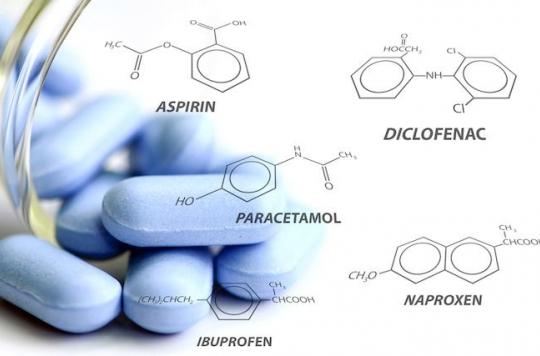Diclofenac, the world’s best-selling anti-inflammatory drug, increases the risk of developing cardiovascular disease, in addition to the risk of gastrointestinal bleeding. This cardiovascular toxicity occurs for shorter durations than previously considered. In addition, Voltarene® has minimal but very real toxicity for the liver.

Taking diclofenac to relieve inflammatory pain is a frequent gesture, which some people abuse by repeating the catches, or even by never interrupting them. If this drug, available for many years, is very effective in short course on inflammation, especially articular, only taking it over the long term was considered nephastic for the health of our arteries.
In this study, published in the BJM, it appears that, even at low doses and over relatively short periods (30 days), this nonsteroidal anti-inflammatory drug increases the risk of developing cardiovascular diseases (irregular heartbeat, heart failure, stroke, myocardial infarction) . A problem already known for long-term treatments for atherosclerotic diseases and short-term for heart failure, but which appears to be more important than for other non-steroidal anti-inflammatory drugs.
Diclofenac, now generic, is also known by its trade name Voltarene®. It is a drug that exists in the form of tablets, suppositories and topical gel. Its use is recommended in the event of temporary or recurring inflammatory pain (painful periods, joint pain), due to its anti-inflammatory properties.
Twice the cardiovascular risk
The national medical data of all 6.3 million Danes were analyzed over 20 years, from 1996 to 2016. The people included in the study initially had a low cardiovascular risk, none had cancer, schizophrenia, dementia or kidney, liver or ulcer disease. L
Researchers compared the uses of diclofenac (in 1.3 million people), ibuprofen (in 3.8 million people), naproxen (in 290,000 people) and paracetamol (in 760,000 people). In particular, it was a question of noting the occurrence of possible cardiovascular diseases 30 days after the start of the treatments. 1.3 million drug-free controls were also analyzed.
Result: the risk of cardiovascular event in patients who use diclofenac increases:
• 50% compared to those who take no anti-inflammatory treatment,
• 20% compared to those taking paracetamol (a pure pain reliever) or ibuprofen
• and 30% compared to those taking naproxen.
Until now, it was known that the risk of decompensation of heart failure could occur very quickly after the first use of an NSAID, but it was thought that the risk of coronary or atherosclerotic disease arises after several months of treatment (3 to 6 months depending on the studies).
Gastrointestinal bleeding
Diclofenac also increases the risk of gastrointestinal bleeding approximately 2.5 times compared to ibuprofen, paracetamol and naproxen. This is why the recommendations suggest taking an anti-ulcer drug of the PPI type, concomitantly with taking NSAIDs, in people with a history of peptic ulcer and those over 65 years of age.
“Treating pain and inflammation with nonsteroidal anti-inflammatory drugs may be helpful in some patients to improve their quality of life despite the potential side effects. However, given their cardiovascular and gastrointestinal risks, start treatment at diclofenac base before trying the others anti-inflammatory non-steroidal drugs seem little justified, “conclude the authors of the study.
In 2013, the National Agency for Medicines and Health Products Safety (ANSM) published a press release informing that diclofenac was now contraindicated in patients with “heart failure, ischemic heart disease, peripheral arterial disease and / or cerebrovascular disease. “The press release also stated that” the lowest effective dose of diclofenac for the shortest time necessary to control patients’ symptoms should be used. “
Finally, you should know that within non-steroidal anti-inflammatory drugs, Voltarene® tends to increase liver enzymes, indicating a certain toxicity for the liver.

.















